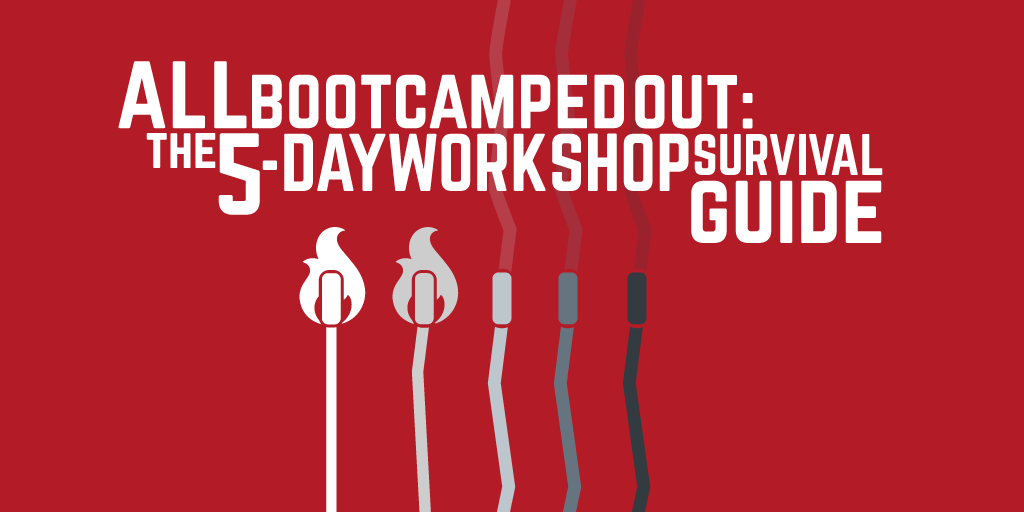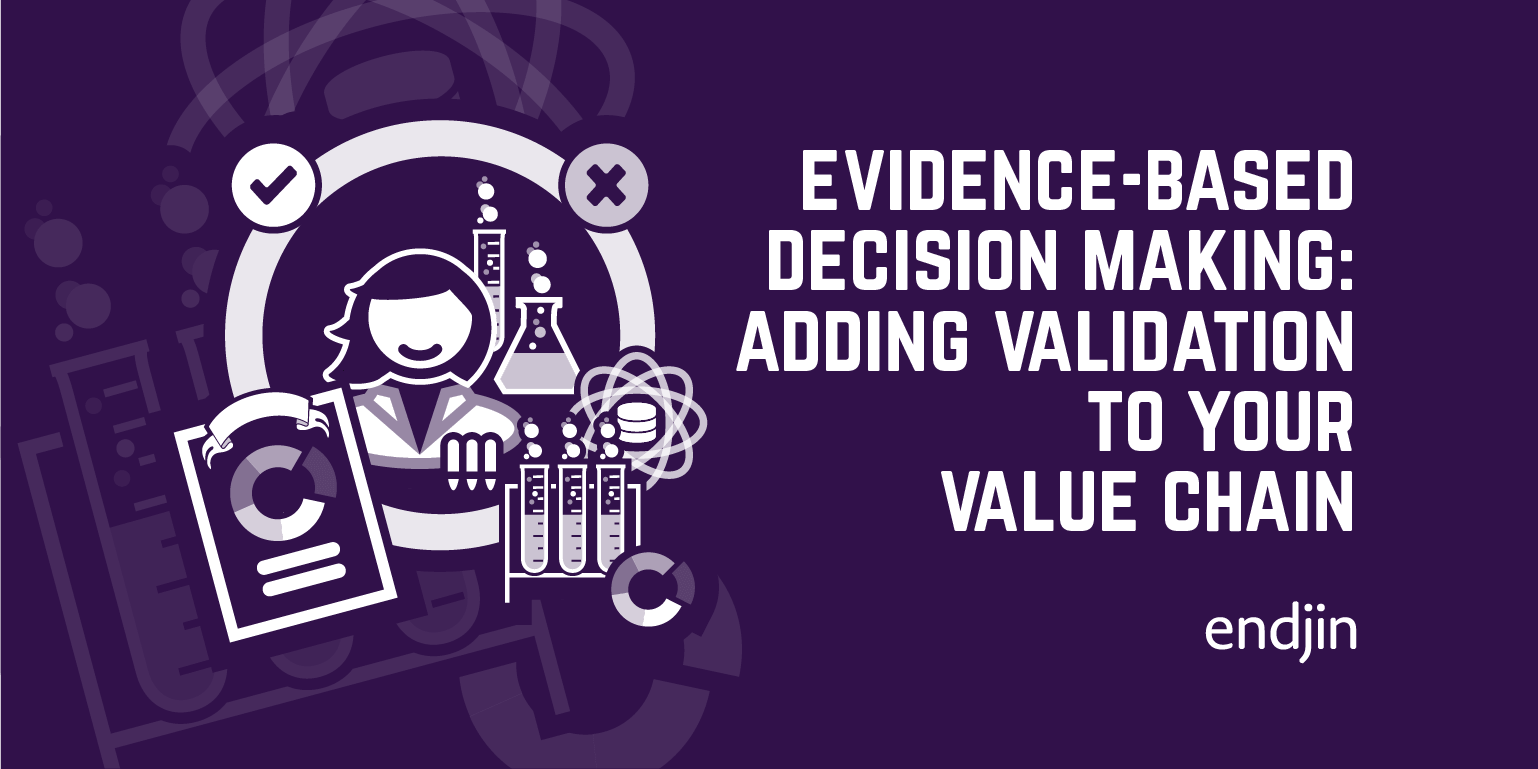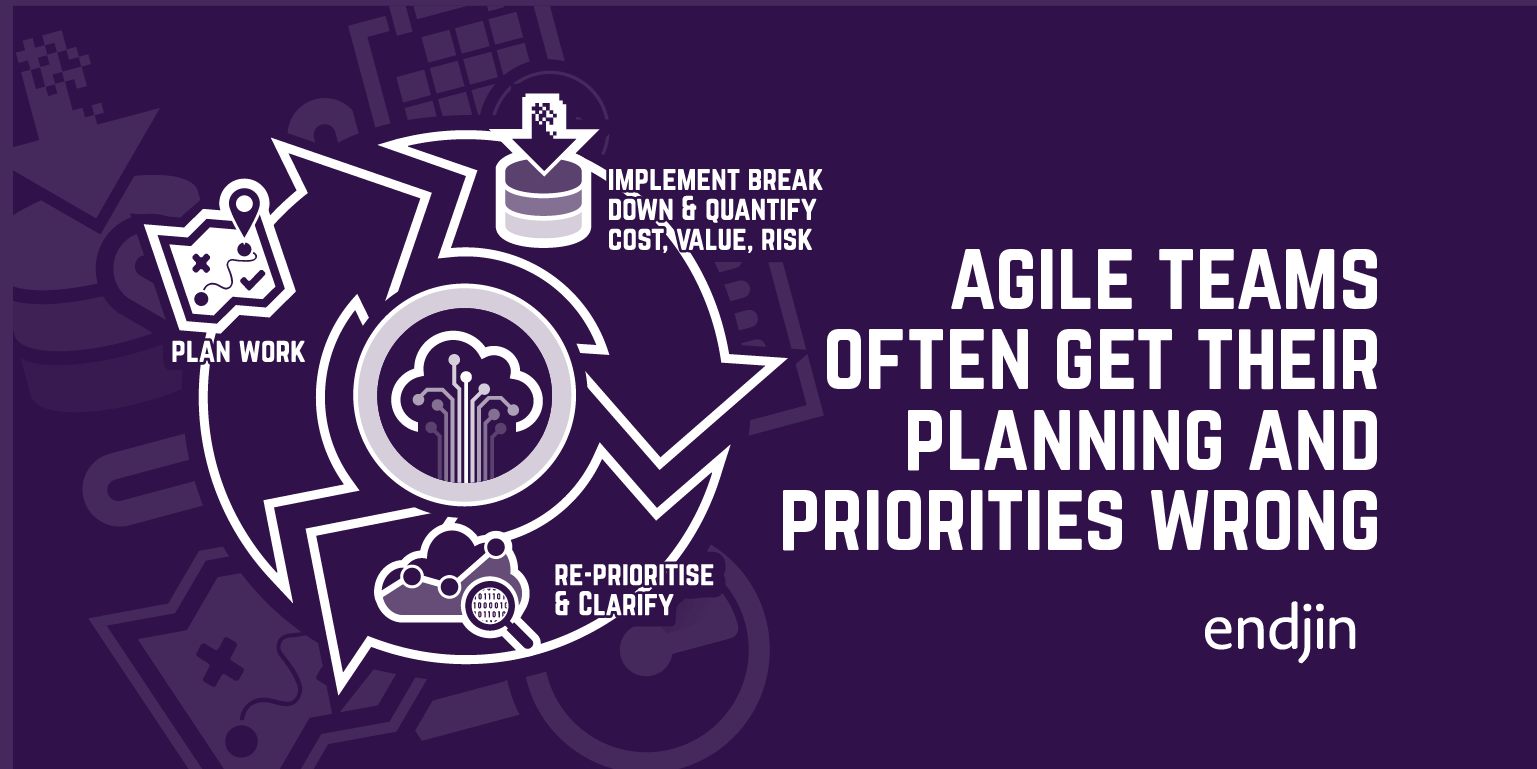All Bootcamped Out: the 5-day workshop survival guide

We've been running workshops and training sessions for a long time now, and one thing we've learned from that is that PEOPLE DO WORKSHOPS WRONG.
From MBA classes, to design sessions, there seems to be a common problem: burn-out.
There's so much evidence1 that over-work, even in a short period, leads to a rapid spiral of incompetence and inability to learn, that you have to wonder why people pay for expensive instructor-lead training, ideation sessions or Product Development Bootcamps, and then burn themselves out on day one.
Here's the usual pattern.
We all work 16 hours on day one - partly to demonstrate enthusiasm, partly to help create team bonds through adversity, partly through guilt/imposter syndrome ("I'm not pulling my weight"), and partly because there is a macho culture around intensive, multi-day workshopping that says we're not doing it right if we're getting to eat and sleep. That macho culture is perpetuated by poor facilitators who seem to think that "breaking people down" is an important part of the process. It really isn't.
There's no time to unwind, and you haven't eaten properly, so you go to bed exhausted and wake up a couple of hours later unrefreshed, "ready" to start another day. Your thinking is cloudy and slow, the group starts to be argument-prone, and there is no clarity of purpose. And so it continues.
By day 3, you are all basically useless. You may think you are pushing through and producing great work, but you aren't. Your work is of measurably poorer quality, and your ability to retain lessons learned, and think critically, is essentially zero.
How do we try to fix that? Our approach emphasises a goal-driven, inclusive, focused, sustainable approach that you can take away and repeat outside of the workshop environment.
So, here are our top tips for surviving a 5-day workshop
Don't do it
Run a three day workshop and maybe another three day workshop the following week. It's more manageable, particularly around other work commitments; you get just as much out of it; and you do 6 days instead of 5.
Manage a backlog
Work out what you need to achieve. Spend a session elaborating a backlog that you'll add to over the week. If it is a training event, add the sessions, labs etc. to the backlog. If it's NPD, add the NPD steps as top-level backlog items.
Manage a goals list
As well as a backlog, brainstorm and prioritise a list of goals - something from everybody in the room. Every task that you execute must be aligned with one of those goals, or you shouldn't be doing it. You haven't got time. Remember that your goals can change during the week. This helps avoid anyone feeling frustrated or left out, and helps the team support each other.
No outside commitments
If you're exhausted and doing a poor job of the workshop, just imagine how bad your decision making around your day job will be.
Focus
Work in 25 minute chunks with a 5 minute break. Then take a longer 20 minute break every couple of hours2. Each chunk is enough time for a brainstorming session, a short lecture, a training lab session, a customer call, some desk research or some backlog grooming. Focus on a single task, and add anything else you think of to the workshop backlog.
Start early, finish early
You might think you're a night owl. But teams work better in daylight (and sleep better at night!). Although an 8 hour working day is optimal for quality and sustainability in the long term, plan to do a 10 or 11 hour day. Start at 8am sharp with a 25 minute planning session, dealing with any impediments or disagreements from the previous day. Run 4 or 5, 2 hour sessions, and then wrap up with a 30 minute wind-down at the end.
Change environment
Don't spend the whole week in the same room with terrible lighting and a suspended ceiling, getting sweatier and sweatier. Spend a couple of sessions in the park, or in a coffee shop, or in a quiet corridor. Get plenty of natural light and time to work alone as well as in the group.
Eat, drink, and be merry
Plenty of water, snacks and juice, all day. But only eat in the breaks, and take lunch in one of the 20 minute breaks. At the end of the day, have dinner together, but have a rule that you can't talk shop; use dinner as an opportunity to learn more about your team-mates as people. Don't drink alcohol. You'll waste half of the next day.
Sleep, and wake up
Then, go home/back to your hotel, and unwind completely; watch some TV; listen to some music. And get to bed by 11pm. Set your alarm for 6am. Eat a decent, balanced breakfast, preferably on your own, and get your thoughts together for the next day.
-
There's a good summary of the general short- and long-term implications in this BMJ article↩
-
That's the Pomodoro technique.↩




